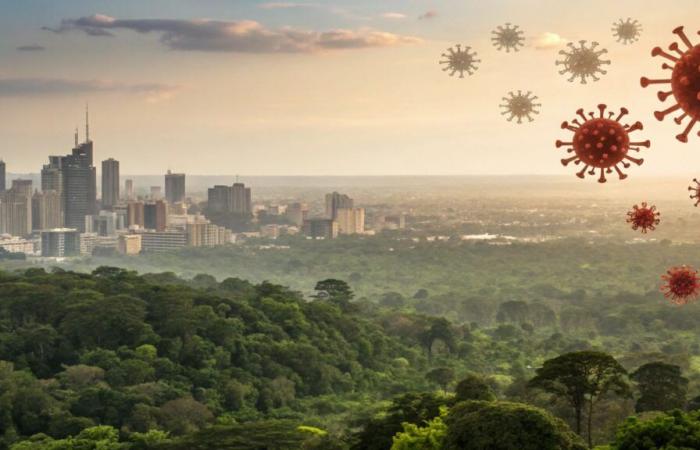Pandemics, these scourges that span the ages, seem to be gaining momentum again after a period of calm. Despite scientific advances, their return questions our ability to prevent these global health crises.
Ecosystems play a crucial role in regulating disease. When balanced, they limit the spread of pathogens. However, human activities, such as climate change and loss of biodiversity, are disrupting this balance. For example, the global warming promotes the expansion of mosquitoes carrying diseases such as dengue.
The destruction of natural habitats increases contact between humans, domestic animals and wildlife. These interactions facilitate the transmission of viruses, such as HIV, which passed from monkeys to humans. Likewise, bats, natural reservoirs of many viruses, are suspected of being at the origin of the pandemic of COVID-19.
The root causes of pandemics, such as poverty or deforestation, are often neglected in favor of immediate causes, such as viral transmission. Yet acting on these underlying factors is essential to prevent future crises. For example, hunger pushes some populations to hunt wild animals, increasing the risk of zoonoses.
A global approach, called “planetary health”, proposes to reconcile human health and the preservation of ecosystems. This vision interdisciplinary aims to address both the immediate and root causes of pandemics. It is increasingly taught in universities, preparing students future decision-makers to better manage these issues.
Thus, to reduce the risk of pandemics, it is imperative to protect ecosystems and address socio-economic inequalities. Human health and that of the planet are inseparable, and their preservation requires concerted action on a global scale.
What is planetary health?
Planetary health is an interdisciplinary approach that links human health to ecosystem health. It starts from the principle that our well-being depends directly on the stability and richness of natural systems. This global vision aims to preserve resources All by improving the quality of life des populations.
Ecosystems provide essential services, such as water purification, climate regulation and food production. When degraded, these services are compromised, directly affecting human health. For example, deforestation can increase the risk of infectious diseases by bringing humans closer to wild animals.
Planetary health offers integrated solutions to address environmental and health issues. It encourages collaboration between scientists, decision-makers and local communities. The goal is to create policies that protect both nature and people, taking into account social and economic inequalities.
By adopting this approach, it is possible to prevent health crises while preserving ecosystems. Planetary health thus offers a framework for building a more sustainable and equitable future, where human health and that of the planet are inseparable.






